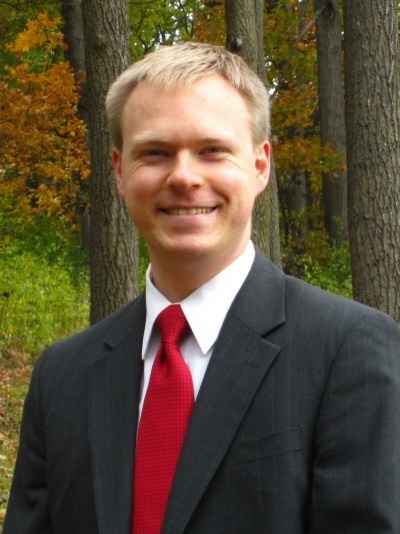Chief Justice Taps G. Ryan Snyder (J.D. ’12) for Judicial Clerkship

Chief Justice John G. Roberts, Jr. has invited NDLS alum G. Ryan Snyder (J.D. ’12) to join his chambers as a judicial clerk for the October 2014 Supreme Court term. Ryan is the third NDLS grad to be named a Supreme Court judicial clerk in the past decade.
“I’m deeply honored to clerk for the Chief Justice of the United States,” Ryan says. “This clerkship will give me the chance to work on the most challenging and interesting legal issues of the day with the Chief Justice. I can’t think of a more exciting opportunity.”
Ryan attributes his selection to a number of factors, starting with the public-law offerings at NDLS. “Since graduation, I’ve worked on a number of cases that involved either constitutional or statutory interpretation,” he says. “I always felt well-equipped to analyze those issues because of the education I received at Notre Dame.”
Ryan specifically credited four of his mentors at NDLS: Professor Amy Barrett, with whom he studied statutory interpretation; Professor A.J. Bellia, with whom he studied Federal Courts, Professor G. Robert Blakey, with whom he studied Criminal Law, and Professor Bill Kelley, whose class he took for Constitutional Law.
“I owe all four of these professors a tremendous debt,” he says. “In addition to giving me the substantive skills I needed, from the very beginning they all gave me great career advice. I would not have gotten this clerkship without them.”
Ryan also expresses gratitude to Judge Raymond M. Kethledge of the U.S. Court of Appeals for the Sixth Circuit, for whom Ryan clerked upon graduation. “Judge Kethledge is a fantastic judge to clerk for,” Ryan says. “He spent a lot of time giving me feedback and coaching me on legal writing, and he also strongly encouraged me to apply for a Bristow Fellowship, which has proven to be an invaluable experience.”
Ryan is currently one of the four attorneys selected nationwide to serve in the Solicitor General’s Office as 2013 Bristow Fellows. Bristow Fellows assist attorneys in the Office of the Solicitor General in writing briefs on the merits in Supreme Court cases and in preparing for oral argument. They also prepare recommendations for the Solicitor General regarding authorization of government appeals in the lower courts and draft briefs in opposition to petitions for certiorari that are filed against the government in the Supreme Court.
“During law school, Professor Kelley always encouraged people to work with the SG’s Office if they could and stressed how much they could learn about writing legal briefs there. Judge Kethledge said the same thing – that the SG’s Office is the gold standard for brief writing. During my time here I’ve had the opportunity to learn from some outstanding attorneys, and I know that experience is going to be very helpful to me next year.”
Ryan said he chose to attend NDLS for a number of reasons. First, he was interested in going to a school that had a national focus. “With many law schools,” he says, “the advice is to stay in the area after you graduate. But a Notre Dame degree is recognized nationwide. Also, I was really impressed by the idea of a school that emphasized how law is not just a professional career choice, but also an opportunity to have a positive effect in the world.”
Once he began his first-year studies, he says he was delighted to confirm that NDLS is serious about seeking to educate a “different kind of lawyer.”
“I learned firsthand that this is not just a marketing slogan, but rather something the faculty pursued both in and out of class. My professors cared about the law, but they cared about much more than that. They really cared about the students, and they always encouraged us to explore the moral issues that arise in the law.”
After his clerkship, Ryan says he would like to continue working in the public-law area in Washington, D.C., where he currently resides with his wife, Anna.
Last year, according to data reported to the American Bar Association, Notre Dame stood in a tie for 10th place among U.S. law schools for its rate of placing students in federal judicial clerkships.

